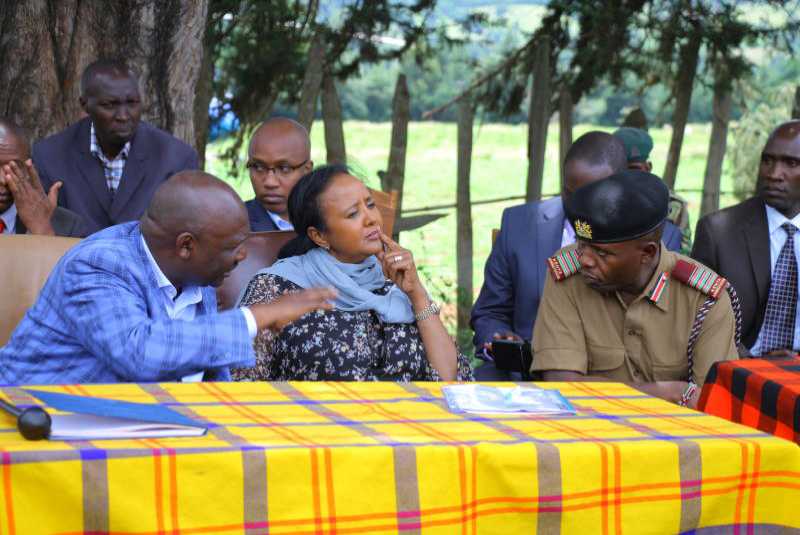
L-R:Narok Governor Samuel Tunai,Education CS Amina Mohammed and Narok County Commissioner George Natembeya at Olposimoru during a spot-check ahead of oncoming national examinations. [PHOTO:ROBERT KIPLAGAT]
The year 2015 was without doubt the most calamitous year in the history of Kenya Certificate of Secondary Examinations (KCSE) in Kenya. Even though cheating had been going on for several years, this is year that the circus got to a whole new level. The government through the Ministry of Education and the Kenya National Examinations Council (KNEC), then set about to reclaim the battered integrity of perhaps the most important examination in the country.